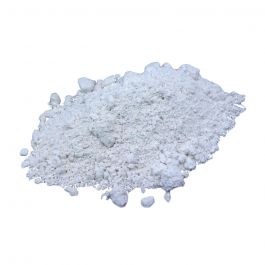- Language
- 🇺🇸
- Joined
- Mar 1, 2024
- Messages
- 343
- Reaction score
- 475
- Points
- 63
alüminyum bunu daha şüpheli hale getirmez mi? o zaman bir şey sakladığınız çok açık. ama bilemem, daha önce hiç ilaç postalamadım.
- Language
- 🇬🇧
- Joined
- Jan 19, 2024
- Messages
- 45
- Reaction score
- 31
- Points
- 18
Birçok kişi alüminyumun X ışınlarını engellemeye yardımcı olduğunu söylüyor ama ben bunun bir efsane olduğunu düşünüyorum
Kurşun, 11400kg/m³ yoğunluğu nedeniyle X ışınını engellemeye yardımcı olur, ancak alüminyum sadece 2700kg/m³'e sahiptir, bu yüzden işe yaramaz olduğunu düşünüyorum
sadece uyuşturucu sarmak için iyi
Kurşun, 11400kg/m³ yoğunluğu nedeniyle X ışınını engellemeye yardımcı olur, ancak alüminyum sadece 2700kg/m³'e sahiptir, bu yüzden işe yaramaz olduğunu düşünüyorum
sadece uyuşturucu sarmak için iyi
↑View previous replies…
- Language
- 🇺🇸
- Joined
- Jan 23, 2024
- Messages
- 112
- Reaction score
- 39
- Points
- 28
- Deals
- 12
Saçmalık! Alüminyum folyo röntgeni engellemez.
Uyuşturucunuz organik moleküllerden oluşan bir yığındır. Organik, x-ışını üzerinde metalden farklı görünür ve ayırt edilebilir.
x-ışınını engellemek istiyorsanız, uyuşturucunuzu benzer bir organik enveronmentin içine daldırarak masum bir şey gibi görünmesini sağlamalısınız. ancak bu noktada duruyorum çünkü kendi gizli yöntemlerimi ifşa etmek istemiyorum.
Uyuşturucunuz organik moleküllerden oluşan bir yığındır. Organik, x-ışını üzerinde metalden farklı görünür ve ayırt edilebilir.
x-ışınını engellemek istiyorsanız, uyuşturucunuzu benzer bir organik enveronmentin içine daldırarak masum bir şey gibi görünmesini sağlamalısınız. ancak bu noktada duruyorum çünkü kendi gizli yöntemlerimi ifşa etmek istemiyorum.
- Language
- 🇺🇸
- Joined
- May 8, 2024
- Messages
- 49
- Reaction score
- 10
- Points
- 8
Theoretically aluminum can shield against electromagnetic waves, also x-ray.
But the thin layers used mostly are not enough.
There are different ways through which a material can block electromagnetic waves.
Scattering and absorption which often happens in high density, but it also works through the conductivity of a metal, and aluminum and copper for example have a good conductivity, and this allows them to absorb energy from the electromagnetic radiation pretty well, because of their free electrons.
But you would need a thick layer of aluminum, the normal foil is not going to do that well-
But the thin layers used mostly are not enough.
There are different ways through which a material can block electromagnetic waves.
Scattering and absorption which often happens in high density, but it also works through the conductivity of a metal, and aluminum and copper for example have a good conductivity, and this allows them to absorb energy from the electromagnetic radiation pretty well, because of their free electrons.
But you would need a thick layer of aluminum, the normal foil is not going to do that well-
- Language
- 🇺🇸
- Joined
- May 8, 2024
- Messages
- 49
- Reaction score
- 10
- Points
- 8
Also the shielding ability of aluminum is better (lot better) at lower frequencies, and thickness would need to be increased a lot to shield effectively against x-rays. Also at such high frequencies like x-ray denser materials with high Z are normally required because they have a higher probability of interacting with high energy electromagnetic waves, but theoretically every conductor can block them t some point, also aluminum, but you need a very thick layer which is not practical.

